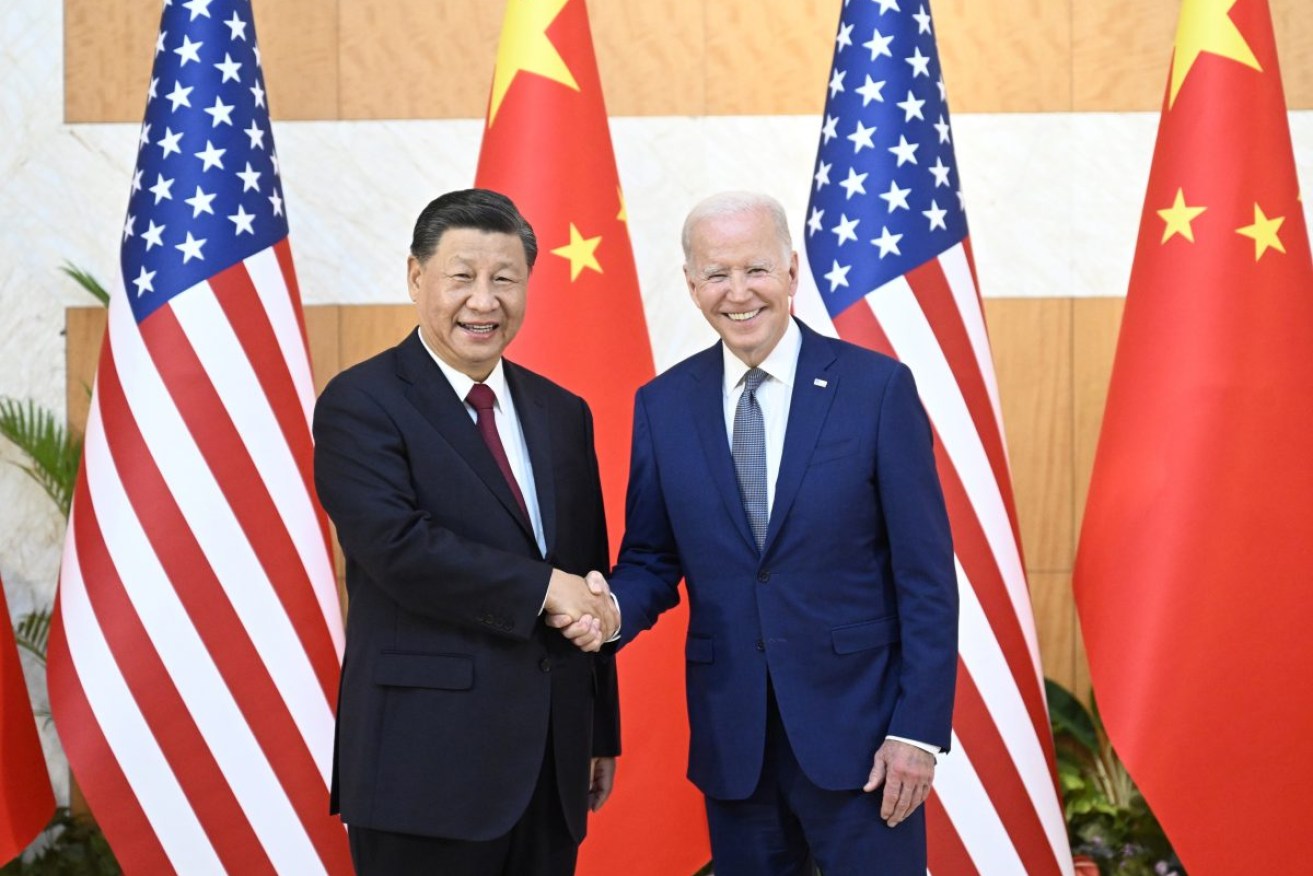Communication lines open as PM prepares to meet Xi Jinping
China and Australia appear ready to mend their fractured relationship as the leaders of the two nations prepare for a highly anticipated meeting.

Chinese President Xi Jinping with US President Joe Biden at the G20 Summit in Bali in November. Photo: EPA/Xinhua/Li Xueren.
Prime Minister Anthony Albanese will meet Chinese President Xi Jinping on the sidelines of the G20 summit this afternoon.
It’s the first time since 2016 an Australian and Chinese leader have had a one-on-one meeting.
While Mr Albanese would not reveal what he plans to discuss with the president, he considered it a success that a meeting will take place.
“For six years we have not had any dialogue and it is not in Australia’s interest to not have dialogue with our major trading partners,” he told reporters in Bali.
“We will have a constructive dialogue. I will put Australia’s position on a range of issues, and of course, Australia’s positions on most of those is very well known.”
China’s trade sanctions on Australian products, security muscle-flexing and relationship with Russia provide a backdrop for the significant meeting.
The head of Australia’s peak business group, in Bali for the B20 meeting of industry representatives, described it as a “tremendous reset” with China.
“We’ve obviously had a set of difficulties in the relationship, but you can’t fix those if you don’t have a dialogue,” Business Council of Australia chief Jennifer Westacott said.
“This creates an opportunity for businesses to come in behind that reset the prime minister has done and start building those … relationships.”
Albanese has also confirmed bilateral talks with new UK Prime Minister Rishi Sunak, French President Emmanuel Macron and Indian Prime Minister Narendra Modi at the summit.
The prime minister’s meeting with Xi comes after the Chinese leader and United States President Joe Biden engaged in blunt talks on Monday afternoon over Taiwan and North Korea in a three-hour meeting aimed at preventing strained US-China ties from spilling into a new Cold War.
Amid simmering differences on human rights, Russia’s invasion of Ukraine, and support of domestic industry, the two leaders pledged more frequent communications.
US Secretary of State Antony Blinken will travel to Beijing for follow-up talks.
“We’re going to compete vigorously. But I’m not looking for conflict, I’m looking to manage this competition responsibly,” Biden said after their meeting.
Beijing has long said it would bring the self-governed island of Taiwan, which it views as an inalienable part of China, under its control and has not ruled out the use of force to do so.
In a statement after their meeting, Xi called Taiwan the “first red line” that must not be crossed in US-China relations, Chinese state media said.
Biden said he sought to assure Xi that US policy on Taiwan, which has for decades been to support both Beijing’s ‘One China’ stance and Taiwan’s military, had not changed.
He said there was no need for a new Cold War, and that he did not think China was planning a hot one.
“I do not think there’s any imminent attempt on the part of China to invade Taiwan,” he told reporters.
Beijing had halted a series of formal dialogue channels with Washington, including on climate change and military-to-military talks, after US House of Representatives Speaker Nancy Pelosi upset China by visiting Taiwan in August.
Biden and Xi agreed to allow senior officials to renew communication on climate, debt relief and other issues, the White House said after they spoke.
Xi’s statement after the talks included pointed warnings on Taiwan.
“The Taiwan question is at the very core of China’s core interests, the bedrock of the political foundation of China-US relations, and the first red line that must not be crossed in China-US relations,” Xi was quoted as saying by Xinhua news agency.




